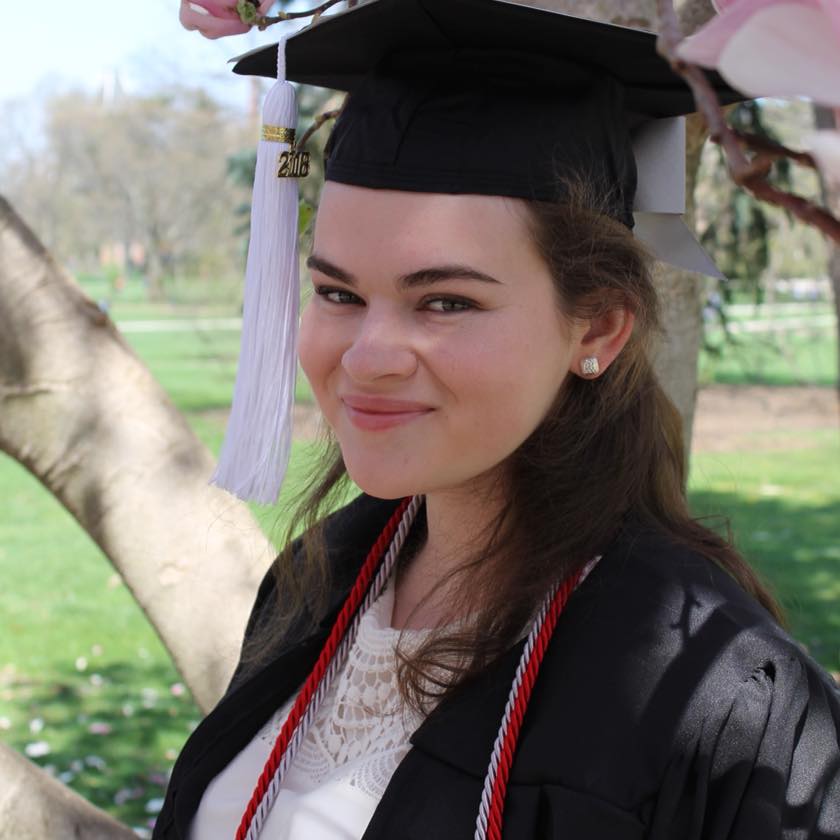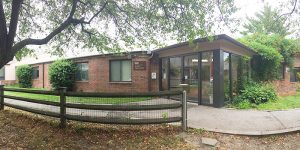Each month, our Outreach Team highlights a current student who is innovating to positively advance the department’s mission while excelling in their studies at Tufts.
This month, Outreach Coordinator Nick Woolf interviewed second-year Master’s student Emma Weihe to learn more about her time at Tufts and passion for bringing performing arts to children with special needs.
Who: Emma Weihe
Graduation Year: 2020
Program: Child Studies and Human Development, M.A. Candidate

Nick: Tell me about your path — what brought you to Tufts, and what were you doing prior to enrolling?
Emma: During my time at The Ohio State University, where I went to undergrad, I was involved in the Shakespeare and Autism Project, which utilized a specific type of drama therapy as a way to teach social skills for children on the autism spectrum. I fell in love with the work and wanted to pursue this further, but I didn’t quite know how. I was drawn to Tufts, and specifically EP, because of the program’s flexibility and interdisciplinary nature. I knew I wanted to integrate performing arts and child development, especially with children with special needs, and I knew that there were plenty of resources at Tufts and Boston that would help me figure out what I needed to do.
Nick: What types of research and/or applied work are you involved with at E-P?
Emma: I worked in Eileen Crehan’s lab over the summer and helped with her research on sex education with autistic adults. As for applied work, I am currently interning with Partners for Youth with Disabilities (PYD) in their Access to Theatre (ATT) program. This group uses theatre to develop social, communication and self-advocacy skills for young adults with disabilities in the greater Boston area. Additionally, I am currently planning to collaborate with a local high school’s drama club to create a sensory-friendly performance for audience members who may benefit from a more relaxed setting.
Nick: What was the genesis for/inspiration behind your internship this past summer? How has the experience been continuing there during the school year?
Emma: Access to Theatre has two main programs: one in the school year that focuses more on concrete skill-building, and the Summer Institute where participants create a variety show from scratch over the course of two weeks. I had heard of this program at a conference I attended, so they were on my radar, but it wasn’t until I was connected with the people at ATT that I realized that I could get involved. The Summer Institute was a whirlwind two weeks, but in that time, I was able to observe skilled teaching artists and work with wonderful participants as we created our show together. It was important that it was a collaborative experience, because I was able to learn about the disabled experience and forming a positive identity around that label.
Being at ATT in their summer program was quite helpful in transitioning to the weekend programming. I am familiar with the main facilitators, some of the participants, and a number of the activities used in each workshop. This familiarity allows me to stay in the moment and focus on the activities and how the participants engage with them.
Nick: How would you describe your experience as part of Applied Track at E-P so far?
Emma: I love the opportunity to be a part of the applied track. It is so important to bring the real world into academic life. Often, especially as grad students, we can get sucked into bubble of academia that we lose touch with our own experiences or the people we want to help. Interning and creating a capstone rather than a thesis really helps to keep these ideas at the front of my mind as I continue through school.
Nick: Do you have any advice, tips or words of wisdom to current E-P students?
Emma: Go out and explore! Go to conferences. Try projects that might not work. Reach out to faculty at other schools in the area. You’re here to learn, why not use all the opportunities afforded to you?

 ABOUT
ABOUT